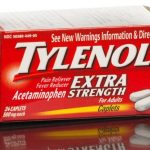
12 Surprising Benefits of Spearmint Tea and Essential Oil
Spearmint or garden mint is a beneficial herb found in toothpaste, mouthwash, cosmetics, and health food products. Its leaves and oil are used to make medicine, food, and beverages. It has a similar aroma to peppermint and is rich in vitamins and antioxidants.
Some of the alleged advantages below have not been clinically examined but are based on traditional medical expertise. For example, the Ancient Greeks and Romans utilized mint leaves to treat pain and indigestion, and this tradition has continued to this day.
How can I prepare spearmint tea?
Wash and tear the spearmint leaves. Pour boiling water over one tablespoon of tea leaves for every 8-ounce cup of water in a French press or teapot with a strainer.
- Steep for 5 to 10 minutes, depending on preference. Gently smash the spearmint leaves with a spoon to release the oils. Then, remove the strainer while pressing on the leaves to drain as much liquid as possible.
- For a milder tea, leave the mint leaves on the stem and boil the whole stem and leaves in a mug or cup.
Spearmint tea is caffeine and calorie-free. It is a natural tea that can be enjoyed at any time without negative side effects. When consumed in moderation, spearmint tea is safe. Excessive consumption, however, may cause kidney and liver damage.
12 health benefits of spearmint tea and oil
- Improves digestive health
- Spearmint herb possesses carminative properties, aiding in the normal passage of gases from the body and preventing excess gas production in the intestines and stomach. This helps alleviate indigestion, vomiting, and bloating.
- It aids in the release of digestive enzymes, gastric juices, and bile, allowing efficient breaking down of meals for absorption into the bloodstream and preventing indigestion and diarrhea.
- Carvone, a monoterpene in spearmint, contributes to its antispasmodic properties, which relax the gastrointestinal walls and relieve cramps and intestine spasms.
- Painkiller properties (especially for arthritic patients)
- Spearmint possesses anti-inflammatory and analgesic effects that can effectively relieve headaches and joint and muscle pain.
- Studies have shown that spearmint essential oil relieved pain and reduced joint stiffness and physical impairment in people with knee arthritis.
- Its antispasmodic properties alleviate painful muscular spasms and convulsions, which helps soothe menstrual cramps.
- Enhances skin health
- Spearmint is an excellent antiseptic agent for treating wounds, bug bites, cuts, scrapes, acne, psoriasis, jock itch, athlete’s foot, and nail fungus.
- Its anti-inflammatory characteristics help soothe irritated skin caused by wounds and skin diseases.
- Relieves nausea
- Spearmint is an effective natural remedy for nausea associated with illness, pregnancy, or travel.
- Studies have reported that spearmint essential oil has a high inhibitory action against chemotherapy-induced nausea and vomiting.
- It has also been shown to alleviate postoperative nausea.
- Enhances emotional health
- Spearmint can help with emotional wellness. Use spearmint essential oil to relax and soothe your senses if you are agitated, nervous, or anxious.
- Spearmint tea is commonly used in South American nations to relieve stress and insomnia.
- By interacting with gamma-aminobutyric acid (GABA) receptors in the brain, spearmint relieves tension and promotes relaxation.
- It helps improve mental clarity, focus, and attention.
- Fights bacterial infections
- Spearmint has antibacterial action against food-poison-causing pathogens, such as E. coli and Listeria.
- It also possesses antibacterial and antiseptic properties that aid in removing germs and other pathogens from the mouth, preventing oral infections.
- Good for the hair
- Spearmint acts as a natural scalp treatment for dandruff, lice, and itchy and dry scalp.
- Spearmint essential oil stimulates hair growth and strengthens the hair, reducing hair loss.
- Helps women with hormone imbalances
- Spearmint tea may benefit women with facial hair growth.
- Improves memory
- Animal research has shown that spearmint extract can improve memory and learning.
- Packed with antioxidants
- Spearmint has a high concentration of antioxidant chemicals, such as rosmarinic acid, flavones, and flavanones.
- Antioxidants help prevent and repair damage caused by free radicals.
- May be helpful during seasonal allergies
- Rosmarinic acid has antioxidant and anti-inflammatory properties, which can lower the immune response to pollen and minimize nasal congestion.
- Antioxidant-rich diets have been linked to enhanced respiratory function and a decreased incidence of asthma.
- A potential treatment for high blood pressure
- Spearmint helps reduce blood pressure.
- Carvone acts like calcium-channel blockers, which are used to treat hypertension.
QUESTION
How to use spearmint essential oil for its health benefits
You can use the oil topically, diffuse it, use it as a mouthwash, add it to a bath, or use it as a compress.
Topically
- Dilute spearmint essential oil in a carrier oil and apply topically to desired areas for wound healing, promoting hair health, and relieving pain.
Diffuse
- Diffuse spearmint oil in an oil burner or diffuser to alleviate nausea.
Mouthwash
- Mix spearmint oil with water and gargle to improve oral health. Avoid swallowing the oil.
Bath
- Add spearmint oil to warm water to ease muscle pain and reduce stress and tension.
Compress
- Apply spearmint oil to a compress and hold it against your head to relieve headaches.
Pregnant women should avoid using spearmint oil as it can increase menstrual flow and estrogen production, which may lead to miscarriage. Dilute spearmint oil with a carrier oil before applying topically and perform a patch test to check for any adverse reactions. Avoid using spearmint oil on open wounds. Consult an expert before consuming spearmint essential oil.
The U.S. Food and Drug Administration classifies spearmint as generally safe for its intended usage.
The U.S. Food and Drug Administration classifies spearmint as generally safe for its intended usage.


